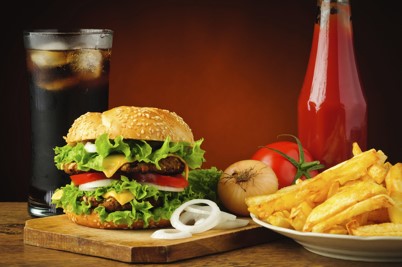|
 Despite strong sanitation rules, it is possible for people to get sick or die from the food they eat. If you run a restaurant, the last thing you want to have is a sick customer. Food-borne illnesses can be very severe. They can lead to hospitalization, long recovery periods and even death. Despite strong sanitation rules, it is possible for people to get sick or die from the food they eat. If you run a restaurant, the last thing you want to have is a sick customer. Food-borne illnesses can be very severe. They can lead to hospitalization, long recovery periods and even death.
If a person gets sick in your business, he or she could sue you for damages. The success of such suits usually involves proving that a certain item of food made the customer sick. However, medical testing and other investigations can identify the blame.
A claim like this could damage your restaurant’s reputation. It could also lead to financial losses. A claim could also cause your restaurant insurance rates to change. A restaurant insurer may consider you a higher risk after a food-borne illness claim.
There are many factors that can contaminate your food or the restaurant’s environment. Contamination can lead to food-borne illness. In some cases these causes are preventable.
Practicing food safety should be a must for all restaurants. Doing so can prevent illness. Keep these tips in mind when reducing your risk for causing food-borne illness.
- Prepare your food correctly, by recipe and cook it fully. Cook all of your meat completely. If customers may choose how they want their meat cooked, always make sure to meet their requests.
- Note on your menus that customers consume undercooked meat at their own risk. In most cases this is the law.
- Your menu should note food that contains allergens like nuts or shellfish. Many laws require these menus to note allergens.
- Buy food from reputable vendors. Suppliers should operate with proper refrigeration, delivery and preservation practices.
- If anyone has a special diet request, prepare that food using special practices. For example, a vegetarian may order a pasta dish. Don’t cook the pasta in a container that you used to cook meat. Exposure to the meat can make a vegetarian sick.
- Don’t cross-contaminate foods. This basically means that you should prepare different food groups using different utensils. For example, a person may be allergic to peanuts. Don't season a steak on the same cutting board used to chop nuts. Residual pieces of nut may contaminate the steak. The customer might get sick.
- Store your food properly. Seal containers, refrigerate pre-made dishes and freeze any items that could spoil easily. Always know how long food lasts in storage. If food is old, do not serve it. Throw it away and clean any containers.
- If food shows signs of mold, rot or other contamination, immediately throw it away.
- Remember, employees can also cause illness. Don’t let employees work when they are sick. Strictly enforce requirements for employee sanitation like hairnets, gloves and handwashing.
- Clean up after your patrons. Wash your tables with disinfectants after every sitting. Sweep your floors. Keep an eye out for vermin infestations like fleas, ticks or mice.
You can reduce the risk of food-borne illness in your restaurant. Reducing risks gives you better protection from your restaurant insurance should an accident happen.
We can help you understand the restaurant insurance and how it covers food-borne illness. If you have questions, call Avanti Associates at (914) 273-8511. You can also explore our website to learn more.
Posted Wednesday, January 25 2017 4:45 PM
Tags : insurance, restaurant insurance, coverage, tips, savings, safety
|